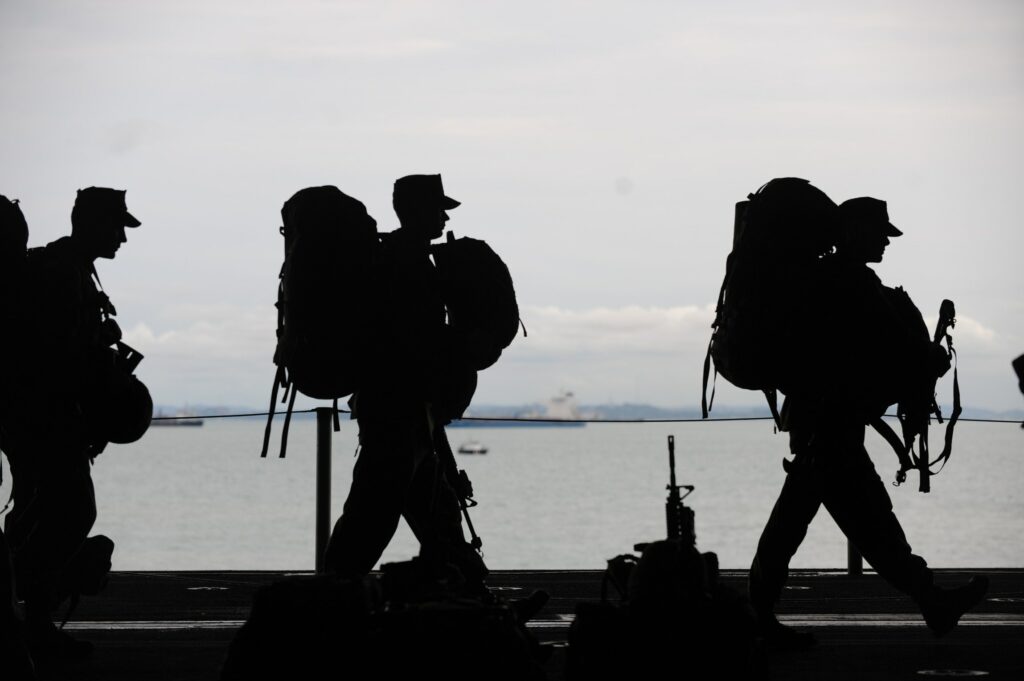Military interventions are often coercive and operate through armed force. These invasions are intentional acts authorized by one state or group of states. The target state is often sovereign and unwilling to submit to the intervention. Any consent granted by a target nation is only sometimes voluntary or genuine. There are numerous political and moral dilemmas with military interventions. International relations have a crucial role in understanding how ethical military interventions are. To achieve a high level of ethical standing, the invading nation must receive overwhelming support from the international community. These actions can be chaotic. Therefore, a path must be available to restore order and justice after the invasion has ended.
This article will examine the complex dynamics surrounding the ethics involved in military interventions. International relations significantly enable or disable military interventions, as the global community can exert pressure on states.

Arguments for Military Intervention
Military interventions often face opposition through international relations because powerful nations can abuse this tactic. It is challenging to convince smaller countries to speak against this because they may benefit from various geopolitical strategies. Proponents of military interventions often argue that these invasions are legitimate and can prevent or correct great wrongs.
In the past, many nations invaded each other to increase the size of their empire. This crude war model was later replaced by the current paradigm, which supports an anti-aggression model. Nations achieve their economic goals through diplomacy in their international relations. Governments that go rogue and invade recklessly will meet numerous countries that will join this war to help others defend themselves against unwarranted military aggression.
Military intervention can be justified when a target state threatens world peace or when there is a need to balance prior unjust interventions. It is also acceptable to defend against aggression and address human rights violations. The permissibility of interventions varies case by case. Examples include the NATO bombing of Yugoslavia in 1999, the U.S. coalition in Libya in 2011 and the British invasion of Sierra Leone in 2000. Ethically defending military aggression can be challenging; proponents must provide evidence of egregious human rights abuses, grave internal moral crimes, threats to global order and peace, and dangerous failed states with unpredictable leaders and weaponry.
Military intervention can become morally justified in response to systemic and widespread human rights abuses. These abuses can bring about the threat of genocide. Entire populations can be slaughtered or expelled from the country. These actions can have far-reaching geopolitical consequences. It can lead to the creation of significant numbers of refugees, as was the case in Kosovo and East Timor.
Arguments Against Military Intervention
Military interventions are sometimes viewed by their opponents as more destructive than constructive. These events are often described as contradictory to international law.
Military intervention directly challenges the sovereignty of a nation. Many critics of this argue that there are numerous threats to peace worldwide and, therefore, it is impossible to intervene in them all. The recent military coups in Pakistan and Ivory Coast have shown the world that governments pick and choose when it is in their interests to intervene with armed forces. There are some nations where massive human rights violations have occurred without foreign military intervention, e.g., Zimbabwe. In some failed states, the current rubrics of their laws allow for blatant human rights abuses due to the enactment of draconian laws. Ethically, scholars argue that even though systemic human rights are taking place, the world cannot judge because no nation has achieved a flawless record. The incumbents of that nation should solve the legal regulation of tyranny to prevent international countries from creating failed or profoundly unstable states.
The Role of International Organizations and Laws
The United Nations has over 193 member states. This organization’s guiding charter argues the need for military interventions to protect the peace. Chapter VII of the UN Charter supports military actions to deliver a humanitarian intervention. The main challenge with this document is the broadening interpretation in the United Nations. The U.N. Security council comprises a powerful group of nations that can sometimes issue controversial directives. The crude ‘just war’ model was later replaced by the current paradigm, which supports an anti-aggression model. Ethically, this places the fate of every country under their authority, and they can perform international acts of aggression rather than acts of internal suppression.
Conclusion
The arguments for and against military intervention are both convincing. Many scholars argue that these invasions can be necessary to achieve humanitarian objectives, while others say this affects a nation’s sovereignty. It is not ethically correct to avoid taking military action when severe human abuses occur in a country. The challenge here is consistency in tackling the abuses across the world. Scholars often debate why the U.N. has the power to decide which abuses need interventions. Therefore, they argue that it is impossible to intervene in every problem worldwide; consequently, it’s best to refrain from doing so.







































